如今,北京當局將周一的事件定性為伊斯蘭聖戰分子製造的恐怖襲擊,稱這些聖戰分子在那輛運動型多功能車裡裝了汽油、一個汽油罐和「印有極端宗教內容的旗幟」,然而把車開進故宮入口附近的人群。車上的三人和附近的兩名遊客死亡,另有40人受傷。
在香港外國記者會(Foreign Correspondents』 Club)發表演講之後,楊潔勉在問答環節中說,周一的事件會讓中國加強對中亞外交的關注,包括外國軍隊按計劃在明年撤離阿富汗之後的局勢。
周一的事件可能會讓人想起1987年的那次事件,當時,一名年輕的德國飛行員駕駛一架輕型飛機降落在了莫斯科紅場(Red Square)附近。相比之下,那次降落較為和平。
馬蒂亞斯·魯斯特(Mathias
Rust)從赫爾辛基飛抵莫斯科的行動在當時堪稱一記重拳,不僅打擊了自負的蘇聯防空系統,也打擊了整個蘇聯軍方。那次事件導致十餘名蘇軍高官被免職,並
被西方專家廣泛地引為例證,用以證明蘇聯軍方和情報機構無能,阻止不了國家向民主制度轉變,並最終在1991年解體。
中國的統治制度似乎還沒走到發生類似變革的那一步,然而,一群人有能力進入北京的政治核心地帶,並且點燃可能以汽油為燃料的燃燒裝置,這一事實已經引發了種種預測。正如楊潔勉所說,人們預測中國政府會對相關政策和制度進行廣泛重估。
問答之前的演講當中,楊潔勉預測中國外交政策會出現一系列的「再調整」。其中包括更加重視外交戰略規劃,尤其是與中國鄰國有關的戰略規劃,以及避免在全球各地捲入衝突或對抗。
他說,中國政府一貫贊成在全球範圍內實施不干涉別國內政的外交原則,反對任何國外勢力插手台灣或西藏問題,因為中國政府認為台灣和西藏都是中國的一部分。他還說,但國內學者已經開始討論,為了維護全球秩序,中國政府是否應該擔起更大的責任。
楊潔勉是兩本反恐著作的作者,還是對中國外交政策最具影響力的一些家族當中的一員。他的哥哥楊潔篪曾是中國的外交部長,今年春天才卸任,原因是他被提拔成了全面主管中國外交事務的國務委員。
Sinosphere
Seeing a Turning Point for China’s Thinking on Terrorism
By KEITH BRADSHER November 01, 2013
One of China’s leading experts
on counterterrorism and foreign policy predicted on Thursday that the
fiery crash of a vehicle three days earlier near the Chinese
leadership’s compound at the edge of Tiananmen Square would lead to a
broad reassessment of domestic security and China’s diplomacy.
The Beijing authorities now
describe the events on Monday as a terrorist attack carried out by
Islamic jihadists who loaded gasoline, a gas canister and “religious
extremist messages” into the sport utility vehicle before driving it
through a crowd near the gates of the Forbidden City. All three people
in the vehicle died, as did two tourists nearby; an additional 40 people
were injured.
Yang Jiemian, the president
emeritus of the prestigious, government-financed Shanghai Institutes
for International Studies, said the attack was an important moment for
Chinese domestic and foreign policy.
“It will be quite a big
impact on China – China will rethink its actual institutions and
measures against terrorism,” he said Thursday in brief remarks after
delivering a
speech and taking questions in Hong Kong. “Tiananmen is symbolic, so this incident is symbolic.”
He also said that Monday’s episode showed signs of being “prefabricated and long planned.”
During a
question-and-answer period after his speech at the Foreign
Correspondents’ Club in Hong Kong, Mr. Yang said that Monday’s events
would reinforce China’s attention to diplomacy in Central Asia,
including after the planned withdrawal of foreign military forces from
Afghanistan next year.
“We hope we could work together facing with the post-2014 situation in Afghanistan and in Central Asia,” he said.
Monday’s events would seem
to evoke parallels to the more peaceful landing of a light plane near
Red Square in Moscow in 1987 by a young German aviator.
The flight by Mathias Rust
from Helsinki to Moscow was a severe blow then, not just to the vaunted
Soviet air defense system but to the entire Soviet military. The
episode led to the removal of more than a dozen senior Soviet military
officers and has been widely cited by Western experts as a factor in the
inability of the Soviet military and intelligence apparatus to prevent
the country’s shift toward democracy and its dissolution in 1991.
While China does not appear
close to a similar change in governance, the ability of a group of
individuals to reach the political heart of Beijing and ignite what may
have been a gasoline-based incendiary device is already prompting
predictions of a broad reassessment in Beijing of policies and
institutions, as Mr. Yang mentioned.
Mr. Yang declined to comment on the comparison to Mr. Rust.
In his initial speech, Mr.
Yang predicted a series of “readjustments” in Chinese foreign policy.
These include attaching greater importance to strategic planning,
particularly with regards to China’s neighbors, and avoiding conflicts
or confrontations around the world.
The Chinese government
continues to favor the principle of non-intervention in countries around
the world and opposes any foreign role in Taiwan or Tibet, regarding
them both as part of China, he said. But Chinese academics are starting
to talk about whether the Chinese government should shoulder more
responsibility for maintaining global order, Mr. Yang said.
Human rights activists have
long criticized China for its willingness to pursue close relations
with authoritarian or corrupt regimes while making little effort to
impose pressure for domestic changes.
The Chinese Ministry of
Foreign Affairs organized Mr. Yang’s speech months before Monday’s
attack. Mr. Yang said that he was speaking as an academic and not on
behalf of the government.
In addition to being the
author of two books on counterterrorism, Mr. Yang is part of one of
China’s most influential families on foreign policy. His brother, Yang
Jiechi, was China’s foreign minister until last spring, when he was
promoted to the position of state councilor overseeing all of China’s
diplomacy.



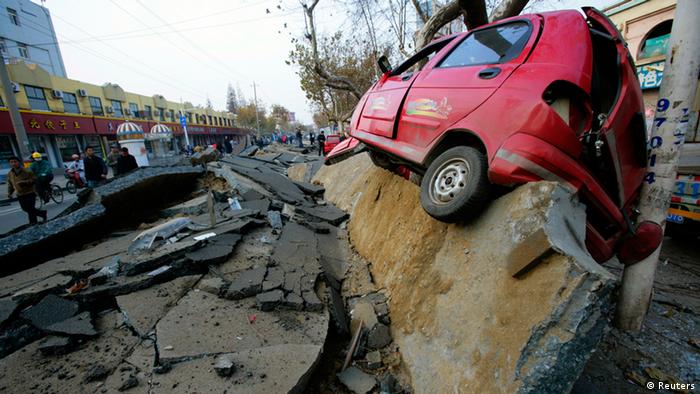
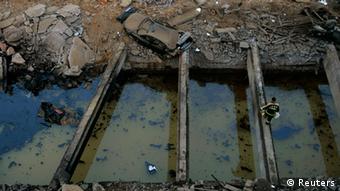
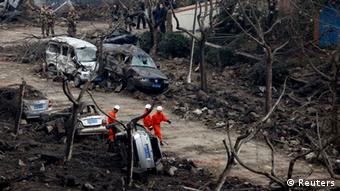
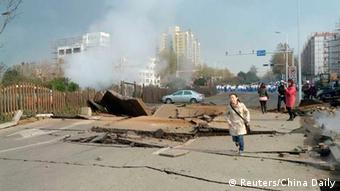


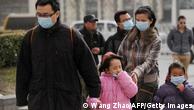
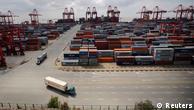
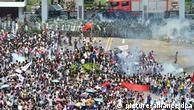



 Hong Kong protesters back Snowden
Hong Kong protesters back Snowden Hassan Rouhani wins Iran presidency
Hassan Rouhani wins Iran presidency Strange fruit
Strange fruit 10 things
10 things In pictures
In pictures 7 days, 7 demos
7 days, 7 demos A new story of Africa
A new story of Africa Fast Track
Fast Track 谷歌執行董事長施密特在香港接受《華爾街日報》採訪時表示,
谷歌執行董事長施密特在香港接受《華爾街日報》採訪時表示,